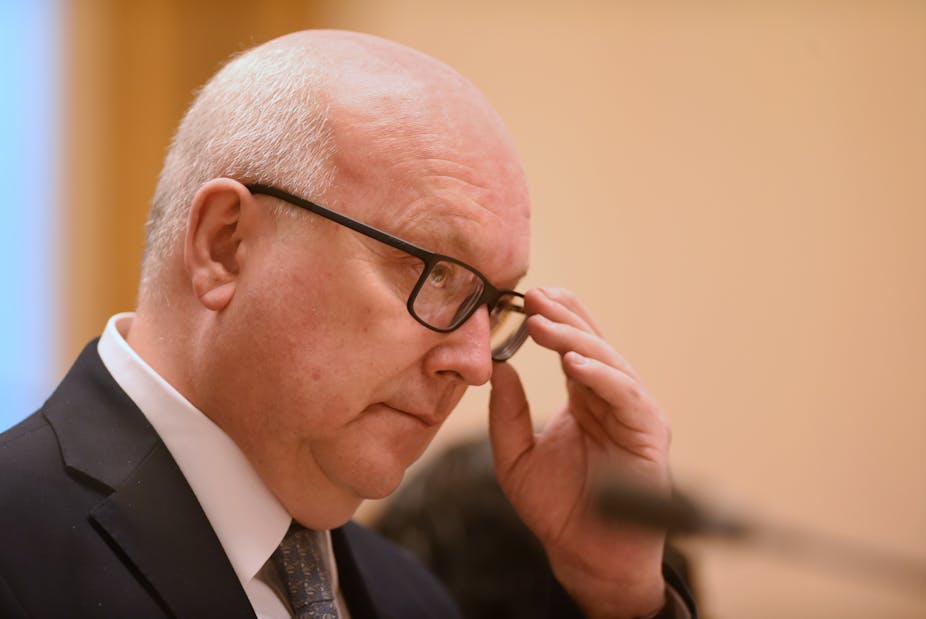The new Commonwealth solicitor-general is Stephen Donaghue, QC, an uncontroversial choice whose appointment has been welcomed by constitutional experts and the federal opposition.
He replaces Justin Gleeson, who quit after a dramatic falling out with Attorney-General George Brandis.
Announcing Donaghue’s appointment, Brandis said he was a “distinguished constitutional lawyer” who had often appeared as senior counsel before the High Court in constitutional and other public law cases.
“His practice has involved complex and high profile matters across a broad range of legal areas,” Brandis said.
Donaghue was called to the Victorian Bar in 2001 and took silk in 2011. He has a doctorate of philosophy from Oxford; before that he studied law and arts at Melbourne University.

He is chair of the public law section of the Commercial Bar Association, a member of the constitutional law committee of the Law Council of Australia, and a senior fellow of Melbourne University’s Law Faculty. He is also on the advisory board of Melbourne University’s Centre for Comparative Constitutional Studies.
His appointment is for five years from January 16.
Anne Twomey, professor of constitutional law at the University of Sydney, said Donaghue was “a highly respected barrister in the field of constitutional law”. He “is more than qualified for the office of solicitor-general. He also has intellectual clout, with a doctorate from Oxford and significant scholarly writings. He is an excellent appointment.”
George Williams, dean of law at the University of NSW, described the appointment as “a very fine choice”; there was “no whiff of any politicisation” about it. Donaghue was impartial and apolitical, Williams said. “He’s widely regarded as one of the nation’s leading practitioners in constitutional law.”
Shadow Attorney-General Mark Dreyfus said he was “an eminent constitutional lawyer” who brought long experience of appearances in the High Court.
“I hope he won’t have to endure the same treatment as his predecessor,” Dreyfus added.
Just before parliament rose for the July election, Brandis issued a controversial direction requiring all requests for Gleeson’s advice to go through him. Gleeson, saying he had not been consulted as required and that the order was against the law, opposed it strongly, including in evidence to a Senate inquiry into the matter. Brandis pre-empted the adverse findings of the inquiry by withdrawing the direction before the Senate could disallow it.
Currently Brandis is under scrutiny by another Senate inquiry, this one into an alleged agreement between the former treasurer, Joe Hockey, and the Western Australian government to facilitate WA’s attempt to retrieve funds from the collapsed Bell Group. The federal government denies an agreement; the WA government says it existed.
Gleeson appeared for the Australian Taxation Office, which was also seeking to retrieve funds. One of the issues is whether Brandis told Gleeson not to run a particular argument in the case. Gleeson did advance the argument – and the WA legislation was overridden. Brandis has refused to say what instructions he gave Gleeson but denied he told him to run dead.

